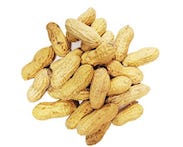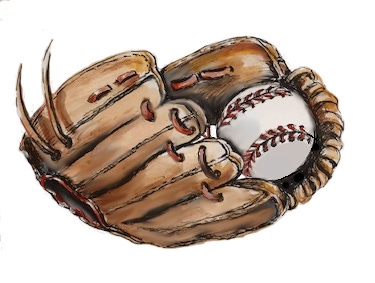
“To me, baseball has always been a reflection of life. Like life, it adjusts. It survives everything.” —Willie Stargell
“It’s an egg. Hold it like an egg.”
—Crash Davis

Baseball, see, is a salve. Neosporin for the soul.
Not everyone gets it or cares, but for many of us there is great narrative power in sports, power to carry one through the heart-ache and the thousand natural shocks that flesh is heir to. Teams, players, the game as a whole—these are all ongoing stories. One of the perks of sports as narrative is that nobody knows what will happen next, even the authors; the tales unfold from a series of uncontrolled physical struggles and build upon one another like a novel: in baseball, pitches are words, at-bats are sentences, innings are paragraphs, games are chapters, and seasons are volumes. Some of these stories are almost 150 years old, and have embraced the lives of many generations of players and fans alike. And because we as watchers engage in sports each with our own heroes and villains, the stories are unique to each of us. Here are three of mine.

Once upon a time I was a 21-year old college student scrubbing dishes on weekends and summers for Ruby Tuesday at the Bellevue Mall in my home town of Nashville, Tennessee. I hated my job with the passion and sneering contempt of one who can see a day ahead when I would never wash a dish in anger again, but still has to tonight. I went home filthy, stinking, and exhausted after every shift. I was paid by a man with a green visor counting pennies out on a checkerboard with long yellowed fingernails, and as the most servile beast in the entire establishment I was looked down upon by everyone from the hostess to the wait staff to the line cooks and even the lowly prep cooks.
The managers were bad enough in this regard; I could never understand why anyone with a college degree would choose a career running a chain restaurant of any description, let alone one so risible as Ruby Tuesday, home of the Breadstick Bonanza or the Ruby Rib Heap or the Lamb Shebang or whatever grotesque cheese-glazed Americana they were hawking in those days. But at least yelling at people was in their job descriptions. The wait staff was far worse. Technically we were all part of a mooing herd of hourly employees, but they got dressed up for work and hustled tips from middle class patriarchs cosplaying wealthy, while I wore a white snap-button shirt soaked in dishwater and reeking of old food. They spoke to me as one might speak to a donkey with a nosebag and a trail of steaming turds in its wake. They considered their duty done if they managed to get dirty dishes in the general vicinity of the steel dish collection counter and had no compunction about mixing in the occasional broken ketchup bottle or glass like a retreating army shrugging off surplus land mines. I still have scars.
That summer the Atlanta Braves were ascendant. In the quarter century that had passed since the Braves had been snared from Milwaukee, they hadn’t done much other than to provide fodder for other teams on their way to glory. Three last-place finishes in a row gave Southern baseball fans no reason to assume that they would ever get anything but bruises from this anthropomorphic box of chicken wings. And then 1991 happened. The Braves trotted out their usual assemblage of discount, off-the rack guys, dressed in baseball uniforms like they were a real team, but at some point over the winter they must have kissed a witch because they played like a real team. By the end of September they’d turned in 94 wins, good for first place in a six-team division. After dispatching the Pittsburgh Pirates in the playoffs, they were World Series bound.
In my black heart, the Braves were a redneck team. They embodied everything I hated about the South, which to me was a meatloaf made of ground up Garth Brooks, pickup trucks, and mullets. I resented them perhaps most for their popularity amongst my loathsome food-slinging colleagues. I craved a crushing defeat. I prayed in the long, cold, secret hours of the night that they would get just close enough to taste the sweet nectar of victory without the satisfaction of a bite. Call me an asshole; I totally get it. But in my defense, sports is just as much about who you hate as who you love, and the Braves were my perfect scoundrel.
The series went the full seven games. I was laboring at a towering stack of filthy dishes smeared with congealed grease and cigarette ashes as the deciding contest unfolded, a scoreless jewel through seven innings, when Robbie, our diminutive Napoleon, decided to extrude a pellet of magnanimity by calling the kitchen staff out into the dining room to watch a moment that would surely come to eclipse any lingering resentment from that whole Appomattox Courthouse business 126 years prior. He poured us each a mug of diet beer and we all scooted into booths to watch the unboxing of history.
The game to that point had consisted of a duel between Jack Morris, a childhood hero of mine from his days with the Detroit Tigers, and John Smoltz, a human ironing board. Smoltz was lifted after 7⅓, but Morris, an antique at thirty-six, kept on pitching like he was made of wire and Gorilla tape. We sipped our cloudy water and watched him mow down Braves.
Morris wound up pitching ten scoreless innings, and in the bottom of the tenth the Twins loaded the bases with one out and a guy nobody ever heard of—Gene Larkin—drove in the game’s lone run, winning the series for Minnesota. The anguish in the room was palpable. Everyone in the restaurant deflated with the sound of a team of horses farting in unison.
It was the happiest moment of my young life.

April Fool’s Day, 1996. I’m sitting, with an ass like a frozen turkey, in the upper deck—just a smidge to the left of home plate—at Riverfront Stadium in Cincinnati, in the midst of a large group of graduate students from the Cincinnati College-Conservatory of Music, watching… absolutely nothing.
There’s a whole nuther story about how I arrived at this strange point in my life, but for our purposes, just know that I was at the time a student of music history, which, like right field, is a good place to hide a liability. I loved music and was a decent academic but I was too scattered to be a performer of any caliber other than Nerf dart, and performance anxiety turned me into a trembling wreck on stage. I was required, however, to participate in an ensemble. The school had a lute teacher with no students, and was willing to lend me a Renaissance lute, a beautiful gourd-shaped instrument with eleven strings, tied-on frets, and a delicate sound not much louder than the swish of corduroy pants. Like a knuckleballer or a switch pitcher, I’d be unique. That seemed like fun.
The rest of the CCM Early Music Ensemble sounded like a traffic jam, or the braying of farm animals. There were whole sections of crumhorns and sackbuts, instruments that sound just like you’d think they’d sound with names like “crumhorn” and “sackbut.” Loud, abrasive, and utterly exhausting. A shuddering bloc of 18-wheelers would prove a poor complement for me and my little Yugo.
Almost all of my performances with the Early Music Ensemble unfolded in more or less the same way, ranging between mediocre and catastrophic, but the worst came in the late fall of 1995. We were performing in a cathedral, in front of an audience of several hundred people. The program stretched into eternity—sextets, septets, octets, nonets, decets, undecets, duodecets, all resonant with the shattering blasts of horns and the grinding screech of reeds. My slot came late, a good forty-five minutes into the concert, by which point my fingers were stiff and I was completely deafened by the cacophony swirling around me.
I gingerly positioned my fingers on the starting frets, trying to relax but overwhelmed by the galactic silence that had fallen all around me, a silence in which I could hear my own pulse. I took a deep breath and touched the strings with my right hand.
My notes crept meekly into the room. They were puny in the cavernous space, but they were sweet enough and coming in the proper sequence. I started thinking things were going pretty well, considering. This was followed by another, more insistent thought: that things were going TOO well and there was NO WAY I COULD PULL THIS MADCAP CAPER OFF. The next chord slipped through my fingers like a flopping fish, and I lunged for the chord after it, missing entirely and producing instead something more like the sound of raw meat slapping a marble countertop.
I hacked and chopped and cheated and farted my way through the rest of the piece, receiving perfunctory applause when the ordeal was over. My body felt hollow, my skin prickly and hot. I’d died on stage.
Later that night I went to a party at the house of a piano player I was friendly with. The house was full of incredible musicians, all seemingly more mature and far more talented than I. I felt like an imposter; like I had nothing in common with any of them and that I was a disorganized and unfocused man-child while they were all zealous, dedicated professionals on a trajectory that pointed to the stars. I went back to my silent, empty apartment and watched TV until I fell into an empty, useless sleep.

Cincinnati never quite clicked for me, but it contained a singular virtue: Riverfront Park. I spent many an hour in the unlovely concrete bowl by the Ohio River, and baseball never failed to lift my spirits, especially Reds baseball, which had been remarkably good in 1995 and was anticipated to be better in ‘96. Opening Day would be a soothing balm on my wounds, I believed, and I longed for it through the long, cold, melancholy Cincinnati winter.
At long last, on the first day of April, I took my seat amongst my fellow music historians, feeling that whatever deficiencies I might have brought with me to the conservatory, real or imagined, didn’t have to be brought to the ballpark. Baseball was a safe place, free from the daily deluge of reality.
Then, seven pitches into the game, the home plate umpire John McSherry abruptly turned and took a few steps toward the backstop before dropping dead of a massive coronary.
High up in the stands we couldn’t make out what was happening but we were free to speculate wildly for… well it seemed like hours, plural. According to legend—and every published article I can find on the matter—Reds owner Marge Schott, whom you may remember for such hijinks as publicly praising Hitler, didn’t want to cancel the game.
So we idled in ignorance and arctic temperatures while she hashed it out with the players, the coaches, the surviving umpires, until eventually she returned to her mountaintop castle and spent the rest of the evening arranging to have her flying monkeys deliver leftover Opening Day flowers to McSherry’s family. I’m not kidding.
Word of the cancellation eventually percolated into the public address booth, where the announcer spoke to us in the booming tones ordinarily reserved for batter walkups like, “NOW BATTING (Batting… batting… batting)… NUMBER ZERO (Zero… zero… zero)… THE GRIM REAPER (Reaper… reaper… reaper). Our prayers, he informed us, were with John McSherry and his family. And with that they released us back into the wild.
We gleaned the full story from the car radio on our way home. I’d died on stage, but McSherry had merely died. Reality had emphatically not been held in abeyance yet I still walked away from that non-game with a valuable nugget of wisdom suitable for framing in the trophy case of my memory. Butchering music in front of people wasn’t the worst thing that could happen to a person. Whatever was unrectified when John McSherry’s left the field that day would be left unrectified, but I was still young and full of hot dogs and beer and I would go on to butcher music publicly many more times, and maybe one day not butcher it. In baseball and music, to butcher the words of Ryne Sandberg, there’s always the next day.
Ted Williams said that “baseball is the only field of endeavor where a man can succeed three times out of ten and be considered a good performer.” Doesn’t have to be the first three times, mind. I’ve seen guys who didn’t do shit for six months start hitting bombs in October, out of the blue, and that’s just fine. Ted was a model of consistency, but you don’t have to be a .400 hitter to win a championship. Timing is everything. Just ask Gene Larkin.

My grandpa died much less theatrically, succumbing to emphysema on a quiet January afternoon in January in 1982, when I was twelve. He was enfeebled and silenced by his ailment, but the summer before he left he summoned all the baseball spirit he had left in his body to give me a priceless gift.
I lived under the auspices of my grandparents for a couple years after my parents’ marriage reentered the atmosphere and burned up, dropping debris all over northern Alabama. My mom went back to school in Huntsville and my sister and I suddenly found ourselves in rural Michigan with not much to do over the long days. I spent a lot of them throwing a baseball against the side of the garage over and over, trying to hit the same brick every time. The ball would bounce off the green painted cinder blocks, taking crazy random hops as it struck various bits of gravel in the driveway.
While I sprinted and dived after those hops, my grandpa didn’t do much of anything. Mostly he’d lie in bed or sit silently at the dining room table, listening to the Detroit Tigers on a boxy little brown transistor radio. Occasionally he’d cover the additional twenty feet to his plaid recliner in the living room, where he’d watch a western or Lawrence Welk. If he felt especially spry he might go all the way out to the garage, where he’d sit in a canvas chair watching the garden grow. Any of these adventures, even the smallest one, would carry repercussions. A trip to the dining room or living room would entail a couple hours’ sleep. A trip to the garage meant he’d be in bed until the following day. Any further was tantamount to crossing the Gobi.
One day he made it all the way out into the back yard.
On this particular afternoon I was out back throwing a ball up into the deep blue Michigan sky and catching it—pretty much the loneliest game a kid can play with a baseball. When I saw him emerge from the garage I did what any eleven-year old idiot would do and begged him to throw to me. He’d had a reputation as a hard thrower when he was a teenaged farmhand; I wanted to see what that meant. I pleaded with him to pitch to me. A real pitch with a look-in for the sign and a windup and everything.
He conceded. I ran the distance I presumed to be appropriate for a catcher to receive a pitch, dropped into a squat, thrust the index finger of my right hand between my thighs, pointing toward the ground. Fastball.
My grandpa wound up like Walter Johnson, stiff leg swinging skyward before slamming down like a hammer, the kinetic charge leaping into his torso and chest and into his long right arm pivoting through the top of an ellipse that ended with his right hand almost touching his left loafer. The ball was low and came in like a buzzbomb. I swept my glove down to the spot it had already vacated, then went chasing across the yard after it.
I threw the ball back and I asked for another. This time I dropped two fingers. Curveball. Of course he wasn’t going to throw me a curve but it didn’t matter. I was catching real pitches and feeling pretty sharp. Again he went into his classic old school windup and fired another seed that leapt past my glove and into the driveway. I retrieved it and turned to see him returning slowly to the garage, where he sat in one of the canvas chairs for a very long time.
It was the one and only time I ever played baseball with him, but I treasure those two pitches and remember them with a crystalline clarity greater than any others I’ve seen before or since.

Baseball was a salve to me when I was struggling to become an adult. It was a salve to me living entirely on my own for the first time in my life, and it was a salve to me as a lonesome kid living amid the wreckage of a family. I think it was a salve for my grandpa too, facing his own final season.
Franklin Delano Roosevelt understood that it was a salve to many when he wrote a letter in 1942 exhorting the Commissioner of Baseball, Kennesaw Mountain Landis, to keep the game going in spite of the war. Baseball is, rather famously, like apple pie, an American salve. Here’s what Walt Whitman had to say about it:
Baseball is the hurrah game of the republic! That’s beautiful: the hurrah game! well—it’s our game: that’s the chief fact in connection with it: America’s game: has the snap, go, fling, of the American atmosphere—belongs as much to our institutions, fits into them as significantly, as our constitutions, laws: is just as important in the sum total of our historic life.
That sort of earnest boosterism comes off as a bit silly in these darkening days, but don’t forget that Walt saw tough times too. The toughest.
Right now the hurrah game is flickering. It’s in the ICU with a high temperature and labored breathing. The absence of baseball in the spring and early summer was painful; it seemed like a death watch, without salve for our salve. There is no doubt something deeply uncanny about the rickety version of baseball that’s been propped up for the last two months in empty ballparks, with cardboard cutouts in the seats and fake crowd noise piped in over the public address systems. And it will be a weird October. But ballplayers are playing ball, as they have every year since the first youthful day in Elysian Fields before any of us could even be imagined, much less conceived. The importance of this cannot be overstated, because those isolated moments in which a double play is unfolding in all its labyrinthine motions both violent and fine, when an outfielder is lining up for a catch and a throw, sunglasses down, feet planted, leather glove held aloft like a standard, when a baserunner is meditating on the exact instant to shift his weight and take a step toward second, as motionless as a statue but filled with visible energy coiled within and ready to unwind in a burst of knees and cleats—these are precious seconds of complete normality, seconds where nothing matters but the outcome of something as light and inconsequential as play. Everything else slips away for an instant and we can be free.
The patient is unquestionably ill, but these tiny moments are like peaks on an electrocardiogram—signs of life, and where there is life there is hope. These instants of normality are islands in a vast sea of despair, but their presence and the rich emerald vitality that is present within them is a sigil. We can see in them the hale and inexorable continuation of prized sagas under a gray and brittle surface; skips and bumps witnesses to their hidden vigor rather than the rattle of death. It seems the patient could pull through, and that would be a shining example that something thoroughly American can survive, and that if it can, perhaps we can too.
Enjoy the postseason y’all. Even all you goddamn Braves fanatics; I love you from the bottom of my wicked and weary heart.
Yes, yes, and also, yes. As Bouton said, "You spend your life gripping a baseball, and it turns out that it was the other way around all along."